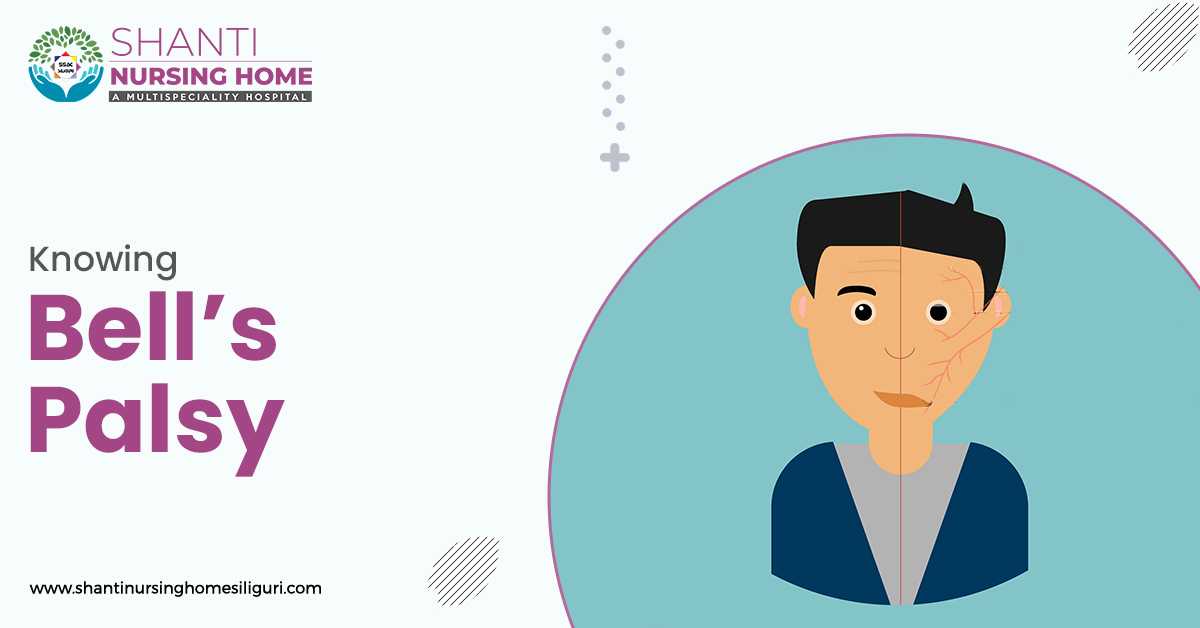The term Bell’s palsy is named after Sir Charles Bell who was a Scottish surgeon, neurologist, and physiologist, involving other specialties. This nervous system condition leads to unexplained, temporary weakness or paralysis of facial muscles. It affects one of the sides of the face.
Much remains unknown about what exactly leads to such facial paralysis. In most cases, the improvements take place within three weeks to six months. It may occur more than once. However, it is rare. Both men and women are equally likely to develop this condition. Visit the most trusted hospital in Siliguri to see your neurologist.
 blogpost H2.jpg)
What are the signs of Bell’s Palsy?
The signs of Bell’s Palsy appear suddenly, including:
- Mild weakness that develops into total paralysis on one side of the face
- Trouble making facial expressions
- Loss of taste
- Pain felt in the face or ear
- Dooling
- Dry eyes
- Sound intolerance
You may feel like having a stroke. Stroke and Belly’s Palsy are not related, however. Seeking immediate medical help is vital. You may have mild signs or severe symptoms (total paralysis). If you have a family history of Bell’s Palsy, it may put you at the same risk, especially if the condition runs in first-degree relatives.
What Leads to Bell’s Palsy?
The risk of getting Bell’s Palsy increases if you have:
- Respiratory illnesses
- Chickenpox
- Shingles
- Diabetes
- Cold sores
- Autoimmune diseases
- High blood pressure
- Family history
- Mumps virus
- Hand-foot-and-mouth-disease
- Infectious mononucleosis
- Influenza-B
- Obesity/ excessive body weight
- Being in the first week after delivery
- Pregnancy, especially during the third trimester
It’s rare but possible one gets recurrent Bell’s Palsy. The chance of recurrent Bell’s Palsy if you have a first-degree relative with this condition. Still, the chance of getting this condition is less. Early medical health evaluation keeps complications at bay. Since the onset of this condition is sudden, you may not notice early signs.
Complications of Bell’s Palsy can be permanent damage to facial nerves, total or partial blindness of the eye, synkinesis (unwanted contractions of the facial muscles during attempted movements), etc. Such complications are rare. Most people with Bell’s Palsy recover without getting complications. Schedule an appointment with your doctor at the most trusted hospital in Siliguri.
 blogpost H3.jpg)
Diagnosis & Medical Care Options
In order to diagnose the condition, a health care provider may examine your facial movements. No specific test is there to rule out Bell’s Palsy. Other health conditions also mimic Bell’s Palsy. Therefore, the doctor may ask for certain tests/diagnostic procedures like – Blood tests, electromyography, CT scan, MRI, etc. Talk to the leading neurosurgeon in Siliguri.
Not everyone with Bell’s Palsy requires treatment. Sometimes, patients heal without medical supervision. For recovery, the specialist may recommend medications, physical therapy, functional facial plastic surgery, etc. These treatment options rest on individual cases. Doctors set the treatment approach that’s best for your healing.






